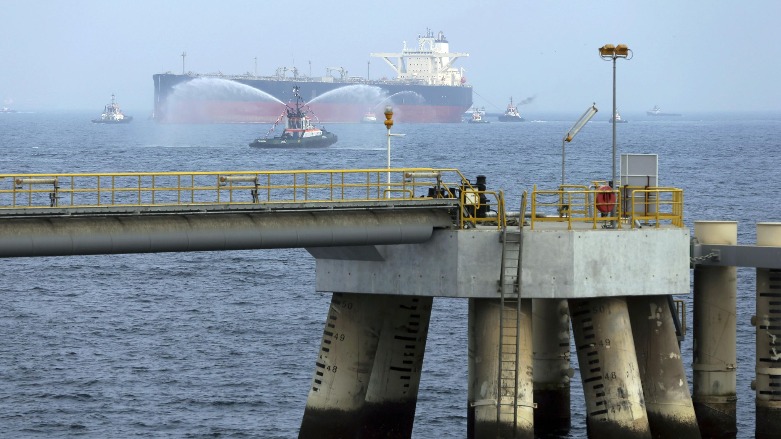Four ships, two from Saudi Arabia, sabotaged amid tensions with Iran

WASHINGTON DC (Kurdistan24) - The Foreign Ministry of the United Arab Emirates said on Sunday that four commercial vessels were damaged by “acts of sabotage” near the country’s territorial waters.
Saudi Arabia’s Energy Minister subsequently confirmed the event, as he revealed that two Saudi oil tankers had been attacked early Sunday morning, at 6:00 AM, and suffered “significant damage.”
Also, late on Sunday, Reuters reported that US Secretary of State Mike Pompeo was canceling a planned visit to Moscow in order to fly to Brussels, where he will hold talks with European officials on Iran before he continues on to Sochi, where he was previously scheduled to meet with Russian President Vladimir Putin and Foreign Minister, Sergei Lavrov.
The UAE Foreign Ministry rebutted much more sensational accounts of the sabotage, first reported by the Lebanese satellite channel, Al-Mayadeen, which claimed there had been seven explosions on oil tankers in the port of Fujairah, one of the UAE’s seven emirates.
Fujairah lies just north of Oman and is located 85 miles south of the strategic Strait of Hormuz, through which a fifth of the world’s crude oil passes.
Iranian media repeated the Al-Mayadeen story, adding another claim: “powerful explosions rocked Saudi Arabia’s port city of Yanbu,” on the country’s Red Sea coast, “earlier this week.”
No such incident was previously reported, and that, along with Sunday’s incident near Fujairah, are probably best understood as a not-so-veiled threat from Iran in the face of mounting tensions with the US.
Indeed, Al-Mayadeen is reportedly close to Hezbollah and to the Syrian regime, both of which are close allies of Tehran.
The attack has raised concern among those involved in the oil business. As the Financial Times reported, “The sabotage incident prompted widespread alarm among industry executives, one of whom described the security-related incident around a major commercial port as ‘alarming.’”
Also on Sunday, the US embassy in Baghdad issued a security alert, advising US citizens of “heightened tensions in Iraq.”
The U.S. Embassy in Baghdad advises all U.S. citizens of heightened tensions in Iraq and the requirement to remain vigilant. Additional information can be found on the U.S. Embassy website at U.S. Citizen Services.https://t.co/zYvVmAqIA3
— U.S. Embassy Baghdad (@USEmbBaghdad) May 12, 2019
A week ago, the White House announced it was dispatching an aircraft carrier and B-52 bombers to the region in response to intelligence that Tehran was planning an attack against US targets or US allies. On Friday, the Pentagon announced the arrival of some of those forces, as well as the additional dispatch of an assault ship and a Patriot anti-missile battery.
Read More: As US forces arrive in Middle East, Pentagon announces more deployments
Iranian officials have repeatedly dismissed the US moves. On Sunday, the newly-appointed commander of the Islamic Revolutionary Guard Corps, Maj. Gen. Hossein Salami affirmed, “Iran is fully prepared for war,” but “our strategic analysis is that there is not going to be a war.”
Americans “have simply created a psychological atmosphere about an imminent war,” Salami told the Iranian parliament.
The sabotage follows a warning issued by the US Maritime Administration on Thursday of a possible Iranian attack on commercial sea traffic, the Associated Press reported.
“Since early May, there is an increased possibility that Iran and/or its regional proxies could take action against US and partner interests, including oil production infrastructure, after recently threatening to close the Strait of Hormuz,” it cautioned. “Iran or its proxies could respond by targeting commercial vessels, including oil tankers, or US military vessels in the Red Sea, Bab-el-Mandeb Strait or the Persian Gulf.”
Editing by Nadia Riva
